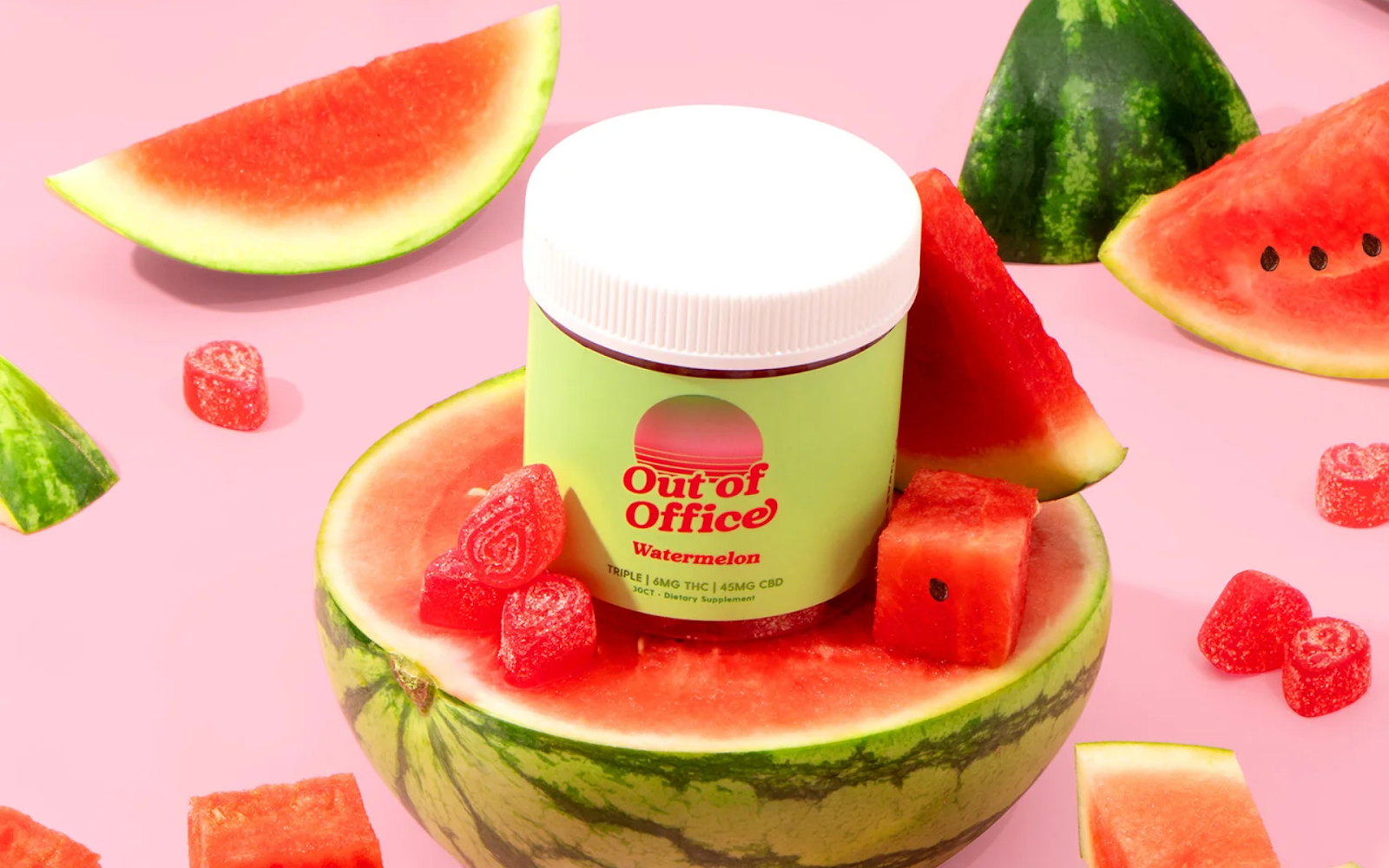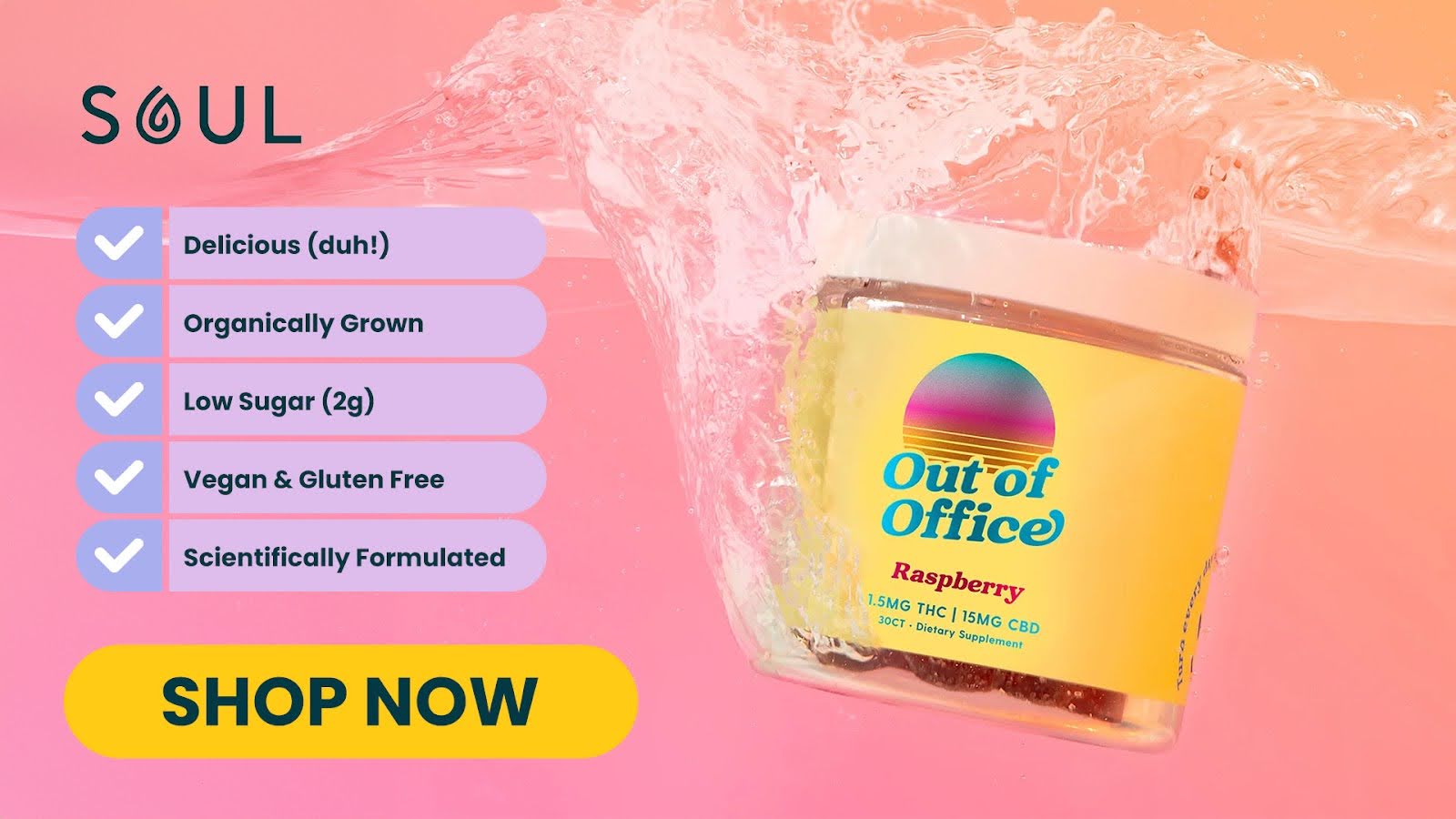
Key Takeaways:
- Healthier Alternative: THC is increasingly seen as a healthier relaxation aid compared to alcohol, offering benefits without the harsh physical consequences.
- Variety of Options: THC comes in various forms and strains, each suited to different relaxation needs and preferences, allowing for a tailored experience.
- Legal Awareness: Understanding the legal landscape surrounding THC is crucial for responsible consumption and accessing it through appropriate channels
Soul, where we pioneer the next generation of relaxation with our premium THC products, crafted to enhance your unwinding experience. At Soul, we pride ourselves on providing only the finest, most effective THC formulations, designed to meet the needs of those seeking a healthier alternative to alcohol for relaxation. In this article, we delve into the unique benefits of THC, exploring how our products can transform your relaxation routine, enhance your mood, and improve your overall well-being. Join us as we uncover the potential of THC in offering a serene escape from the stresses of everyday life, highlight the critical differences between THC and alcohol, and guide you through using THC safely and legally for maximum relaxation.
Understanding THC For Your Buzz
Tetrahydrocannabinol, commonly known as THC, is a chemical compound found in the cannabis plant responsible for most of the psychological effects that marijuana is known for. It works by binding to cannabinoid receptors in the brain, which influence pleasure, memory, thinking, concentration, movement, coordination, and sensory and time perception. THC can be consumed in various forms, including smoking cannabis, ingesting edibles, or using oils and tinctures.
THC's effects can vary widely depending on the strain of cannabis, the method of consumption, and the individual's physiology. Typically, users report feelings of mild euphoria and relaxation, heightened sensory perception, and increased appetite. Unlike alcohol, THC does not cause hangovers, though it can lead to dry mouth, temporary memory impairment, or feelings of paranoia or anxiety in some individuals.
Benefits Of THC For Relaxation
THC has not only carved a niche for itself in recreational use but has also emerged as a significant player in the realm of relaxation. Here’s a deeper look into the key benefits of THC for relaxation, highlighting its advantages as a healthier alternative to alcohol.
Stress Reduction
THC's ability to mitigate stress is one of its most celebrated attributes. By interacting with the body’s endocannabinoid system, THC can significantly dampen the stress response, providing a calming effect that helps users shift away from the pressures of daily life. This makes THC an excellent option for those seeking a mental break without the side effects associated with alcohol, such as next-day sluggishness or emotional downturns.
Enhanced Mood
The mood-lifting properties of THC are well-documented. Users often experience a sense of euphoria and well-being shortly after consumption, which can make social interactions more pleasant and reduce feelings of depression or sadness. This mood enhancement is particularly beneficial for those who want to relax and unwind in a way that alcohol cannot always reliably provide, due to its depressive nature on the nervous system.
Improved Sleep
THC has proven to be a valuable ally in the quest for better sleep. By inducing a state of relaxation and reducing the time it takes to fall asleep, THC can enhance the overall quality of sleep, including prolonging the deep sleep phase which is critical for cognitive function and overall health. This is in contrast to alcohol, which can disrupt the sleep cycle and interfere with the body’s ability to rejuvenate.
Pain Relief
Many individuals turn to THC for its analgesic properties, especially those dealing with chronic pain. THC can alleviate pain not just by masking the discomfort but also by reducing inflammation and relaxing tense muscles. This dual action makes THC a multifunctional tool for relaxation, providing both physical and psychological relief, which can greatly enhance the quality of life for those with chronic conditions.
Comparing THC And Alcohol: What’s The Better Choice For Relaxation?
When weighing the options for relaxation aids, both THC and alcohol present unique benefits and drawbacks. Understanding these can help you make a more informed choice tailored to your personal wellness goals. Here's an expanded comparison of the two:
Health Impact
Alcohol's adverse health effects are well-documented, with its potential to cause liver damage, increase the risk of certain cancers, and lead to dependency being major concerns. On the other hand, THC, when used in moderation, is generally considered to be less harmful. It doesn't cause liver damage and has a lower risk profile for dependency, making it a safer alternative for those concerned about long-term health impacts.
Mental Effects
Alcohol often impairs judgment, reduces coordination, and clouds thinking, which can lead to risky behavior and accidents. In contrast, THC can enhance sensory experiences and promote a state of introspection or creativity. The mental stimulation provided by THC can vary with the strain and dosage, allowing users to choose their desired level of cognitive enhancement or relaxation, unlike the often unpredictable effects of alcohol.
Social Context
Alcohol is deeply entrenched in many cultures and is widely accepted in most social settings, making it a common choice for social gatherings. However, THC is rapidly gaining social acceptance, although it still faces legal and societal barriers in many areas. These barriers can affect where and how people can use THC, limiting its social utility compared to alcohol, but as laws and perceptions change, THC is becoming more integrated into social scenarios.
Withdrawal And Aftereffects
Alcohol consumption can result in significant hangovers, characterized by headaches, nausea, and overall malaise, as well as more severe withdrawal symptoms in cases of heavy and prolonged use. While THC can also lead to withdrawal symptoms, such as irritability and sleep disturbances, these are generally milder and less debilitating than those associated with alcohol withdrawal. This makes THC a preferable option for those who want to avoid the unpleasant aftereffects associated with drinking.
Legal Aspects
The legal status of THC is more complex and varies significantly between regions, unlike alcohol, which is legal for adults in most parts of the world. This variability can affect accessibility and social acceptance, creating a patchwork of regulations that users must navigate. However, the increasing legalization of cannabis for medicinal and recreational use is helping to standardize access and reduce legal barriers, potentially making THC as accessible as alcohol in the future.
How To Safely Use THC For Maximum Relaxation
Using THC safely is essential to ensuring your experience is both enjoyable and beneficial. Here are some expanded tips on how to use THC responsibly to achieve maximum relaxation:
- Start Low and Go Slow: If you're new to THC, it's wise to begin with a low dose and assess how you feel before taking more. This approach allows you to gauge your body's reaction and helps prevent the uncomfortable effects of overconsumption. Remember, the effects of THC can vary greatly between individuals, so what works for one person might not work for another.
- Choose the Right Strain: The type of cannabis strain you choose can greatly affect your relaxation experience. Indica strains are typically recommended for relaxation due to their sedative effects, which can help calm the mind and body. Conversely, Sativa strains tend to provide more uplifting effects that are better suited for creative activities or social gatherings during the day.
- Consider the Consumption Method: The way you consume THC can affect the onset and duration of its effects. Smoking or vaping allows for quick onset, making it easier to control your dosage by immediate feedback on how you feel. Edibles, however, require more time to take effect and can provide a longer, more sustained relaxation period, but they also require careful dosing to avoid excessive intake.
- Set the Right Environment: Creating a relaxing environment can significantly enhance the effects of THC. Ensure your surroundings are comfortable and free of stress-inducing factors. Elements like soft lighting, comfortable seating, and soothing music or sounds can transform a space into a sanctuary perfect for relaxation.
- Stay Hydrated and Don’t Mix with Alcohol: Hydration is key when consuming THC as it can cause dry mouth. Keep water or hydrating beverages nearby to maintain comfort. Additionally, avoid mixing THC with alcohol, as the combination can unpredictably enhance effects, potentially leading to greater impairment or discomfort.
- Know Your Legal Limits: Understanding and adhering to the legal guidelines surrounding cannabis use in your jurisdiction is crucial. This includes where you can legally purchase THC and where you are allowed to consume it. Staying informed about your local laws helps avoid legal complications and ensures a stress-free experience.
By following these guidelines, you can enjoy the relaxation benefits of THC while minimizing potential risks.
Legal Considerations And Where To Find THC
Understanding the legal framework of THC is crucial for anyone interested in using it for relaxation. The legal status of cannabis, including THC, can significantly influence accessibility and compliance, varying widely from one jurisdiction to another. Here are some detailed points to help you navigate this complex landscape:
Check Local Laws
It's essential to verify the current cannabis laws in your area before acquiring or using THC. Regulations can range from full recreational legalization to medical-only allowances, or complete prohibition. Being aware of these laws not only ensures that you remain compliant but also helps you understand your legal rights and limitations regarding cannabis use.
Purchasing THC
In jurisdictions where THC is legal, licensed dispensaries are the safest places to purchase cannabis products. These dispensaries are regulated and offer a variety of products, such as flowers, edibles, tinctures, and topicals. Additionally, trained staff at these locations can provide valuable advice on product selection and the expected effects, ensuring you make informed choices suited to your relaxation needs.
Consumption Guidelines
Where you can consume THC legally also varies by location. While some regions allow consumption on private property only, others may have licensed venues or designated public areas where consuming cannabis is permitted. Understanding these rules can help you avoid legal issues while enjoying THC.
Travel Considerations
Transporting THC products across state lines or international borders is illegal, even if you are traveling between areas where cannabis is legal. This restriction includes all forms of THC, regardless of whether it's for medical or recreational use. Always consume THC products within the same legal jurisdiction where they were purchased to avoid serious legal consequences.
Staying Informed
The legal landscape for cannabis is dynamic and can change rapidly. Keeping updated on the latest laws and regulations in your area can protect you from unintentional legal infractions and ensure you are using THC within the bounds of the law. Regularly consulting reliable sources or legal experts can provide you with timely updates and deepen your understanding of your legal responsibilities as a THC consumer.
Final Thoughts
THC is increasingly recognized not just as a recreational substance, but as a viable tool for relaxation and stress relief. With its ability to enhance mood, aid in relaxation, and provide a safe alternative to alcohol, THC is carving out a significant niche in the wellness industry. As research expands and legal barriers continue to diminish, the future of relaxation may very well be linked to the responsible and informed use of THC.
Embracing THC as part of a relaxation routine could signify a new age of wellness, where individuals opt for substances that offer benefits without the detrimental effects associated with traditional relaxants like alcohol. As we move forward, it will be interesting to see how THC continues to evolve within the realms of law, culture, and personal health.
Read also:
- Tackling Anxiety With THC: A Closer Look At Its Potential Benefits
- Natural Pain Relief With THC Gummies: Exploring THC's Potential For Managing Pain
- Unlocking The Effects Of THC On The Brain: A Comprehensive Guide
Frequently Asked Questions
What are some non-intoxicating alternatives to THC for relaxation?
Aside from THC, options like CBD (cannabidiol), herbal supplements like chamomile or lavender, and techniques such as meditation and yoga can provide relaxation without psychoactive effects.
Can THC help with anxiety?
Yes, many users find that THC can help reduce anxiety by promoting relaxation and altering the perception of stress, though it's important to choose the right strain and dosage as some can paradoxically increase anxiety.
Is it possible to build a tolerance to THC?
Yes, regular use of THC can lead to tolerance, meaning you might need to consume more over time to achieve the same effects. Taking tolerance breaks can help mitigate this.
Are there any THC-free cannabis products that can help with relaxation?
Yes, cannabis strains that are high in CBD and low in THC can offer relaxation benefits without the high, making them a good choice for those looking to avoid psychoactive effects.
How does THC affect sleep compared to alcohol?
THC can enhance the quality of sleep by increasing the time spent in deep sleep phases, whereas alcohol typically disrupts sleep patterns and diminishes sleep quality over time.
What should first-time THC users know about choosing strains?
First-time users should seek advice from experienced dispensary staff, focus on strains known for producing mild, relaxing effects, and start with low THC content.
Can edible THC products be used for relaxation?
Yes, edibles are an effective way to use THC for relaxation, though they take longer to kick in and the effects last longer, so dosing carefully is crucial.
What are some signs of consuming too much THC?
Signs include paranoia, anxiety, increased heart rate, and disorientation. It’s important to start with a low dose and go slow, especially with edibles.
Is vaping THC safer than smoking it?
Vaping can be considered safer than smoking as it produces fewer harmful byproducts; however, the safety can depend on the quality of the vape product.
How can I responsibly incorporate THC into my relaxation routine?
Use THC in a safe environment, choose the right consumption method and dosage, and ensure it does not interfere with your daily responsibilities or health.
Sources:
- McMahon, A., Varma, D. S., Fechtel, H., Sibille, K. T., Li, Z., Cook, R. L., & Wang, Y. (2023). Perceived Effectiveness of Medical Cannabis Among Adults with Chronic Pain: Findings from Interview Data in a Three-Month Pilot Study. Cannabis. https://doi.org/10.26828/cannabis/2023/000149
- National Academies of Sciences, Engineering, and Medicine, Health and Medicine Division, Board on Population Health and Public Health Practice, & Evidence, A. (2017, January 12). Mental Health. Nih.gov; National Academies Press (US). https://www.ncbi.nlm.nih.gov/books/NBK425748/
- Vaillancourt, R., Gallagher, S., Cameron, J. D., & Dhalla, R. (2022). Cannabis use in patients with insomnia and sleep disorders: Retrospective chart review. Canadian Pharmacists Journal / Revue Des Pharmaciens Du Canada, 155(3), 175–180. https://doi.org/10.1177/17151635221089617
- Kirkham, T. C. (2009). Cannabinoids and appetite: Food craving and food pleasure. International Review of Psychiatry, 21(2), 163–171. https://doi.org/10.1080/09540260902782810
- El-Remessy, A. B., Khalil, I. E., Matragoon, S., Abou-Mohamed, G., Tsai, N.-J., Roon, P., Caldwell, R. B., Caldwell, R. W., Green, K., & Liou, G. I. (2003). Neuroprotective Effect of(−)Δ9-Tetrahydrocannabinol and Cannabidiol in N-Methyl-d-Aspartate-Induced Retinal Neurotoxicity. The American Journal of Pathology, 163(5), 1997–2008. https://doi.org/10.1016/s0002-9440(10)63558-4






